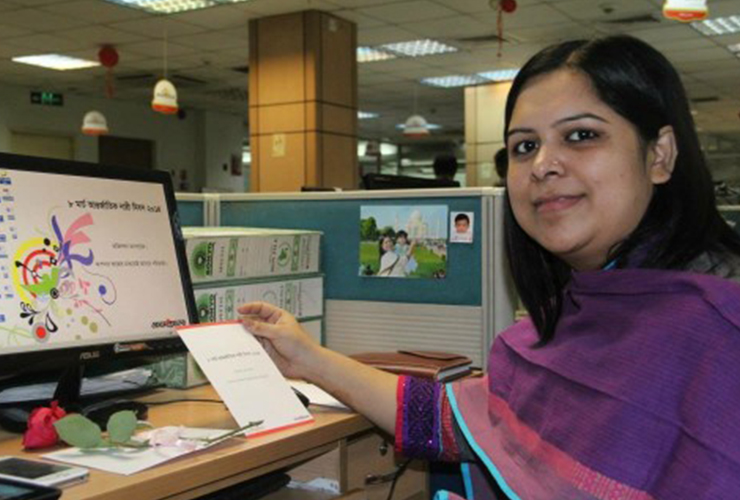The International Press Institute (IPI), a global network for editors, media executives and leading journalists for press freedom, today vehemently condemned the arrest of Bangladeshi journalist Rozina Islam and demanded her immediate release.
According to news reports, Rozina Islam, a senior reporter of Prothom Alo, a leading national newspaper, was arrested in the capital Dhaka yesterday and faces charges under the Penal Code and Official Secrets Act for the theft and photographing of sensitive state documents.
News reports said that Islam was formally arrested after being detained for more than five hours in the office of the Ministry of Health in the Central Secretariat Building. This morning the police requested the Chief Metropolitan Magistrate of Dhaka for a five-day remand to interrogate her, but the Magistrate rejected the plea and ordered Islam to be sent to prison.
“We are greatly concerned that the arrest of Rozina Islam is in retaliation for her investigation into corruption related to Bangladesh’s Ministry of Health”, IPI Executive Director Barbara Trionfi said. “Islam was doing her job as a journalist to investigate and expose corruption and speak truth to power. As a democracy, Bangladesh should respect the right of journalists rather than silencing their voices to hide corruption in the government.”
IPI further called for the immediate release of the journalist.
The police alleged that Islam was using her mobile phone to photograph documents related to Bangladesh’s vaccine purchase at the health ministry. “She was also taking away some documents. An additional secretary and a policeman challenged her at the time”, Madul Islam Propdhan, a spokesman for the Ministry of Health said.
Islam is known for her reports about corruption in the government and in the recent months she has been writing about the corruption involving the Ministry of Health and its expenditures on procurement of equipment to deal with the COVID-19 pandemic.
Islam’s family has alleged that she had been physically and mentally harassed while she was confined to a room in the Ministry of Health.
Meanwhile, journalists in Bangladesh have protested against Islam’s arrest. The Bangladesh Secretariat Reporters Forum (BSRF) and Bangladesh Health Reporters Forum (BHRF) today boycotted a press briefing organized by the Health Ministry.
Press freedom and safety of journalists have suffered a severe setback in Bangladesh as well as in its neighbouring countries in South Asia. On March 4, cartoonist Ahmed Kabir Kishore was released on bail after spending 10 months in prison over his Facebook post on COVID-19 pandemic. He was arrested in May 2020 together with writer Mushtaq Ahmed and prosecuted under Digital Security Act. While Ahmed died in jail at the end of February this year, Kishore claimed that he was tortured and kept in unpleasant conditions in prison.
According to IPI’s COVID-19 Press Freedom Tracker, so far over 100 violations have been reported from four South Asian countries, including 12 cases in Bangladesh.
